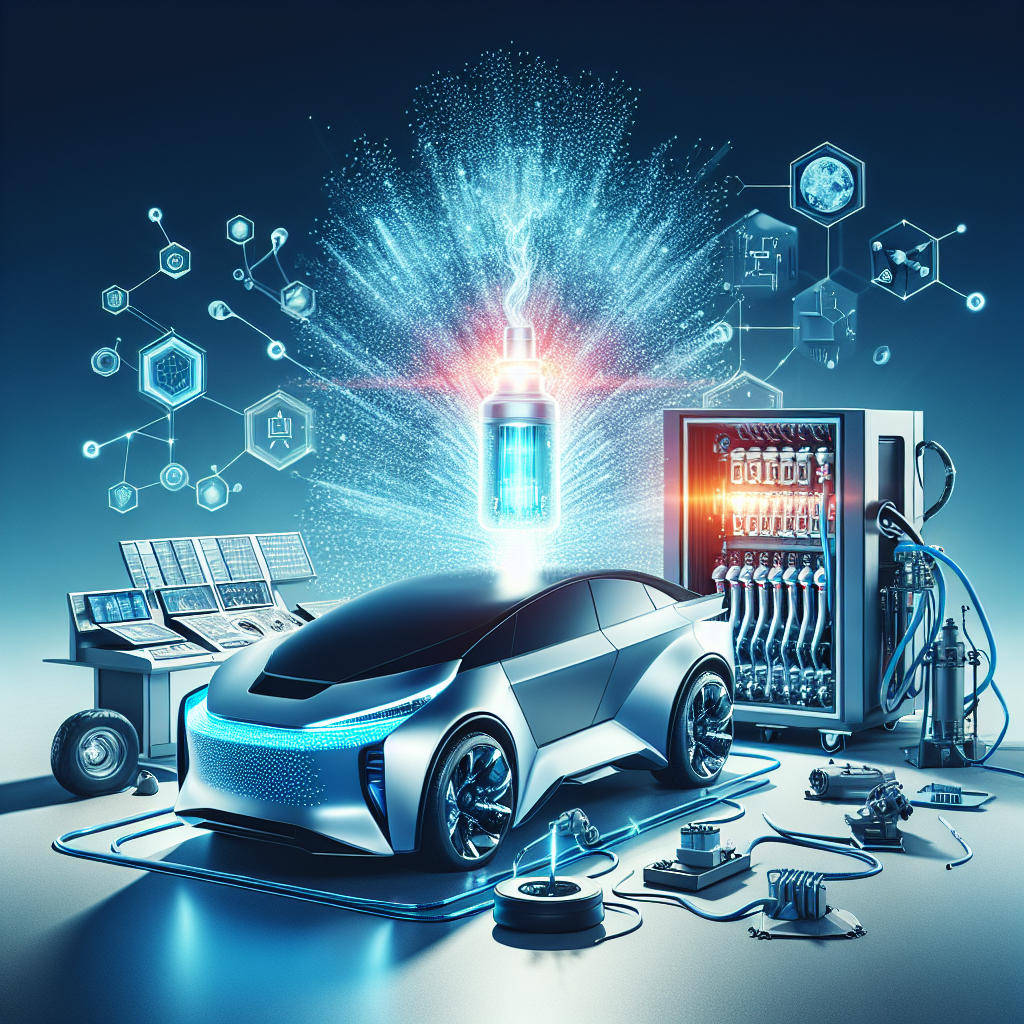Hydrogen Fuel Cells: The Future of Clean Transportation
In the quest for sustainable and clean energy sources, hydrogen fuel cells have emerged as a promising solution, especially in the transportation sector. As the world grapples with the impacts of climate change and seeks alternatives to fossil fuels, hydrogen fuel cells present an innovative path forward. This article explores the potential of hydrogen fuel cells in revolutionizing transportation, making it cleaner, more efficient, and sustainable.
Understanding Hydrogen Fuel Cells
Hydrogen fuel cells generate electricity through a chemical reaction between hydrogen and oxygen, producing water and heat as by-products. This technology offers a stark contrast to internal combustion engines that rely on burning fossil fuels, emitting carbon dioxide, and other pollutants into the atmosphere.
The fuel cell comprises an anode, cathode, and electrolyte membrane. Hydrogen gas is fed into the anode, where it is split into protons and electrons. The protons pass through the electrolyte to the cathode, while the electrons travel via an external circuit, creating electricity. At the cathode, protons, electrons, and oxygen from the air combine to produce water and heat.
The Advantages of Hydrogen Fuel Cells
Zero Emissions: The most significant advantage of hydrogen fuel cells is their zero-emission profile. The only by-products are water vapor and heat, making them an environmentally friendly alternative to gasoline and diesel engines.
High Efficiency: Hydrogen fuel cells are more efficient than traditional combustion-based power systems. They can convert more than 60% of the energy in hydrogen into electrical energy, a marked improvement over the efficiency levels of gasoline or diesel engines.
Energy Security: By diversifying the energy supply, hydrogen fuel cells can reduce dependence on oil and other fossil fuels, enhancing energy security. Hydrogen can be produced from various domestic resources, including natural gas, nuclear power, biomass, and renewable power like solar and wind.
Versatility: Hydrogen fuel cells can power a wide range of transportation modes, from cars and buses to trucks, trains, and even ships and aircraft. This versatility makes them a viable option across different sectors of the economy.
Challenges and Considerations
Despite their potential, hydrogen fuel cells face several challenges that need addressing to realize their full potential in clean transportation.
Hydrogen Production: Currently, the majority of hydrogen is produced from natural gas, a process that emits carbon dioxide. For hydrogen fuel cells to be truly clean, hydrogen must be produced using renewable energy sources through water electrolysis or other green methods.
Infrastructure Development: The lack of a comprehensive hydrogen refueling infrastructure is a significant barrier to the widespread adoption of hydrogen fuel cell vehicles. Building a network of hydrogen stations requires significant investment and coordination.
Cost: The high cost of fuel cell technology, particularly the platinum used in fuel cells, and the expense of producing and distributing hydrogen, remain obstacles to its widespread adoption.
Public Perception and Awareness: Misconceptions about the safety of hydrogen and a lack of awareness about the benefits of hydrogen fuel cells can hinder consumer acceptance.
The Path Forward
To overcome these challenges, concerted efforts from governments, industry, and academia are necessary. Policy incentives, research and development funding, and public-private partnerships can accelerate technological advancements and infrastructure development. Educational campaigns can also play a critical role in changing public perception and increasing awareness of hydrogen fuel cells’ benefits.
Global Efforts and Success Stories
Several countries, including Japan, South Korea, and Germany, have made significant strides in promoting hydrogen fuel cells. Japan’s “Hydrogen Society” vision and South Korea’s “Hydrogen Economy Roadmap” are examples of national strategies aimed at integrating hydrogen fuel cells into their economies and transportation systems.
In the United States, California leads the way in adopting hydrogen fuel cell vehicles and building refueling stations, supported by state incentives and regulations aimed at reducing vehicle emissions.
FAQs
Q: Are hydrogen fuel cell vehicles safe?
A: Yes, hydrogen fuel cell vehicles are subject to rigorous safety standards and tests. Hydrogen has been safely used in various industrial applications for decades.
Q: How long does it take to refuel a hydrogen fuel cell vehicle?
A: Refueling a hydrogen fuel cell vehicle takes about the same time as refueling a conventional gasoline vehicle, typically under 5 minutes.
Q: What is the range of a hydrogen fuel cell vehicle?
A: Hydrogen fuel cell vehicles have a comparable range to gasoline vehicles, with many models capable of traveling over 300 miles on a single tank.
Q: Is hydrogen fuel expensive?
A: Currently, hydrogen fuel can be more expensive than gasoline on a per-mile basis, largely due to the costs associated with producing, storing, and distributing hydrogen. However, as technology advances and economies of scale are achieved, the cost is expected to decrease.
Q: Can existing vehicles be converted to hydrogen fuel cells?
A: While technically feasible, converting existing vehicles to hydrogen fuel cells is not practical due to the different architecture required. Hydrogen fuel cell vehicles are specifically designed and built to accommodate the technology.
In conclusion, hydrogen fuel cells offer a promising avenue for achieving clean, efficient, and sustainable transportation. Despite the challenges, the ongoing global efforts and advancements in technology provide a hopeful outlook for hydrogen fuel cells’ role in the future of transportation. Through continued innovation, investment, and cooperation, hydrogen can become a cornerstone of the world’s energy transition, paving the way for a cleaner, greener planet.

